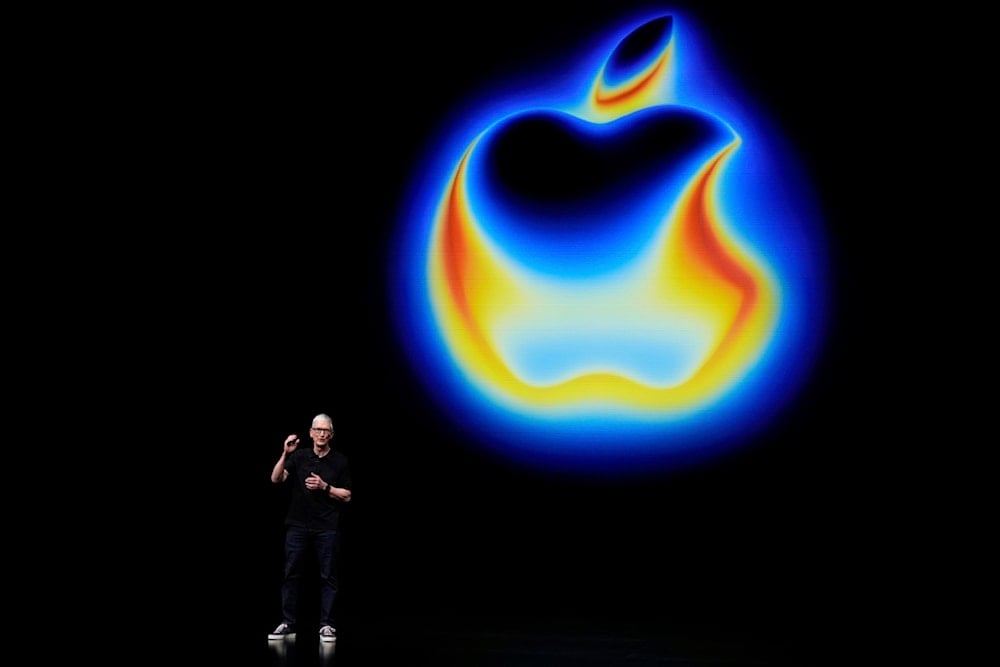Apple commits to deepen China investments amid US tariff threats
Apple is reinforcing its investments and partnerships in China despite escalating US tariff threats under Donald Trump.
-

Apple CEO Tim Cook speaks on stage during an announcement of new products at Apple Park on Tuesday, Sept. 9, 2025, in Cupertino, Calif. (AP)
Apple CEO Tim Cook has committed to expanding the company's investment footprint in China after a meeting in Beijing with Minister of Industry and Information Technology Li Lecheng. The move underscores Apple's drive to shore up its presence in its second-largest market even as US-China trade tensions intensify.
During the meeting, Cook said Apple would "soon announce" new projects in China, adding that detailed plans would emerge later in his trip. Li took the opportunity to press Apple to deepen ties with Chinese suppliers, saying Beijing "expects Apple to continue exploring the Chinese market" and promising a favorable environment for foreign firms.
Tariff risks, strategic constraints
Cook's timing is bold: Washington is actively considering sweeping tariffs on goods made abroad, measures that could hit Apple's margins and complicate its supply chain. While Apple has gradually moved some production to India, Vietnam, and the US, China still remains the backbone of its manufacturing operations. Much of the iPhone assembly, and key components, flow through Chinese firms like Foxconn and Luxshare.
Apple has already felt the strain. Earlier this year, its plans to scale up in India encountered a hurdle when Foxconn reportedly repatriated several hundred Chinese engineers, slowing the ramp-up of local capacity. Even so, Apple continues to thread the needle, investing in the US and Asia simultaneously to manage political pressures and operational risk.
Moreover, Apple recently chose not to raise iPhone prices even as tariff threats loomed, a signal of its willingness to absorb margin pressure to stave off market disruption or consumer backlash.
Diplomacy, market messaging
Beyond manufacturing, Cook's China visit is also a public relations and regulatory play. He visited Apple's flagship store in Shanghai, met with local app developers and artists, including the designer behind the popular Labubu dolls, and confirmed that the iPhone Air would be available for pre-order in China following regulatory clearance for eSIM support.
Cook's earlier trip in March brought a notable China-focused pledge: a 720 million-yuan ($101 million) clean energy fund to support sustainable development locally. That move helped frame Apple as not just a hardware exporter but a long-term investor aligned with China's industrial and environmental goals.
Geopolitics, supply chains & rare earth leverage
Apple's China pivot occurs against a backdrop of escalating strategic competition. China recently expanded export restrictions on rare earth elements, adding five new elements to its restricted list and tightening oversight over related refining and processing equipment. These materials are essential for electronics, electric vehicles, and defense systems.
Foxconn has said these rare earth curbs have had a limited near-term impact, though lingering concerns persist about long-term supply stability. In response to growing US pressure, China has defended the restrictions as legitimate security-based regulation rather than retaliation.
On the US side, Trump has staked out sharper pressure on Apple: in May 2025, he warned that iPhones sold in the US should be manufactured domestically or face a 25% tariff. He also announced proposals for 100% tariffs on imported chips and semiconductors unless firms commit to US production. In recent months, Apple has pledged to invest more than $600 billion over the next four years in the US, a gambit to bolster domestic presence and mitigate tariff exposure.
What's likely at stake
Apple's renewed China engagement appears driven less by retaliation and more by pragmatic risk management. It's seeking to preserve supply chain resilience, maintain regulatory goodwill, and protect its consumer base in China. At the same time, it must counterweigh those goals against US expectations, tariff pressures, and growing efforts by both governments to localize supply chains.
If the US proceeds with aggressive tariffs, Apple could be forced to choose between margin erosion and deeper production shifts. But for now, its China investment push sends a clear message that Apple isn't easily squeezed by political rhetoric. It will seek flexibility, not confrontation.
Read more: Apple's discreet update to AI guidelines after Trump's return

 4 Min Read
4 Min Read








